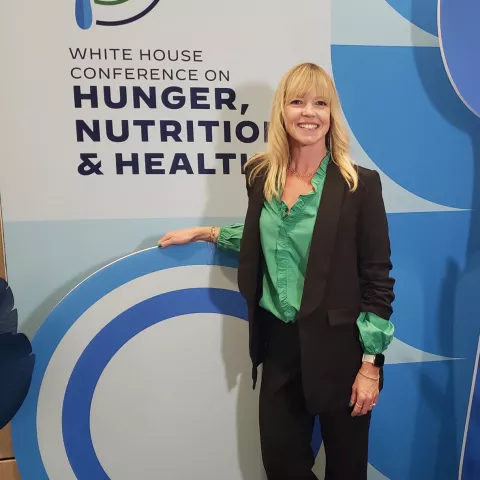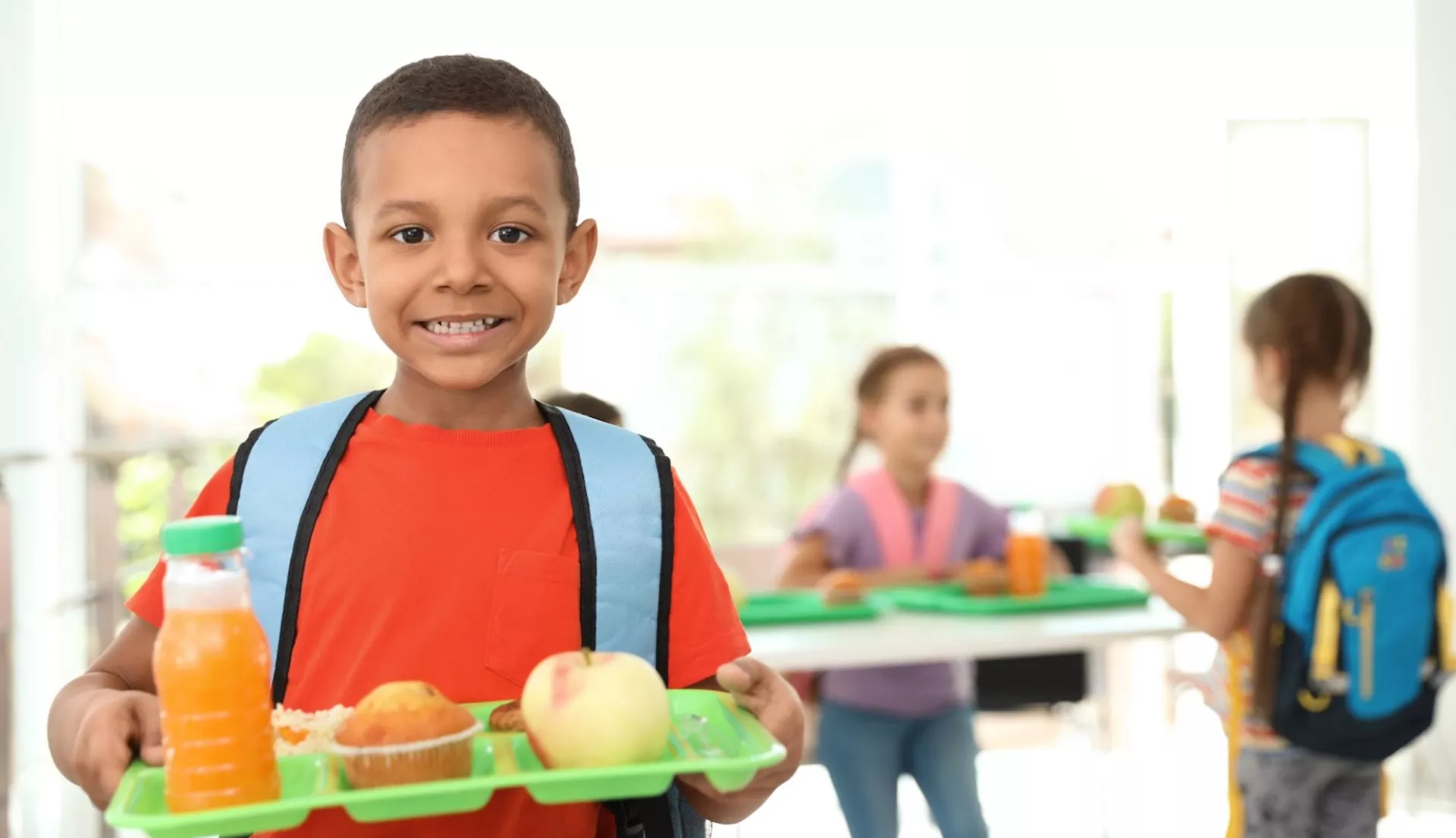
Key Takeaways
- Some communities don’t have safe spaces where kids can play, or ready access to nutritious food that families can afford.
- At the recent White House Conference on Nutrition, Hunger and Health, the Biden administration announced its support for a path to universal school meals.
- Providing universal access to school meals is the best way to ensure that all students are free from hunger, during the ongoing pandemic and beyond.
Cathy Grano has served her New Jersey community in Middletown Township Schools as a school nurse for the past 14 years. As much as Grano values the opportunity to teach students at New Monmouth Elementary School how to care for their own health through good hygiene, nutrition, and physical activity, she also has a bigger picture in mind.
She wants good nutrition and exercise to be similarly available to all of the roughly 50 million students enrolled in America’s public schools.
“There are so many barriers that make it harder for schools to do all they can to support student health,” Grano says. “It’s often a lack of time in the school day due to other instructional demands. Some communities don’t have safe spaces where kids can play, or ready access to nutritious food that families can afford.” Students of color are disproportionately affected by both issues.

Grano was thrilled to be able to share her insights into how schools can support student health at the White House Conference on Nutrition, Hunger and Health that took place in Washington, D.C. on September 28.
She participated in a panel called “The Power of Play” about promoting movement and exercise for kids. “We know that physical activity is an important part of the equation for healthy living,” Grano says. “It has a positive effect on cognitive development, behavior, socialization, and stress relief.”
As Grano said during the panel discussion, schools can do more to make physical activity part of the everyday routine, including short activity bursts like a morning march or a lap at recess; weekly before and after school walking clubs; and using physical activity breaks as an incentive for class accomplishments.
Of course, all of that activity must be fueled by good nutrition. That’s why the Biden administration’s support for a pathway to universal school meals is inspiring to educators like Grano.
“Our community backpack program has a slogan: ’Because you can’t be awesome when you’re hungry!’” says Grano, referring to the BackPack Crew, where she is a regular volunteer. “If we want all students to have the opportunity to shine, we have to do everything we can to support good nutrition.”
Schools Are Key to Fighting Hunger
One out of six children in America lacks consistent access to adequate nutrition.
Research supports that when students participate in school meals programs, their comprehension and attendance improve. The meals children receive at school prepare them for learning and shape their food choices and health outcomes as adults.
Providing universal access to school meals—making them for free to all students and eliminating cumbersome enrollment procedures or partial payments for some families—is the best way to ensure that all students are free from hunger and the stigma that arises from student meal debt or systems that draw attention to students’ financial situation at home.
“We have seen what a difference it made for many families when all students can eat for no charge at school,” says Christin Driscoll, a member of NEA’s Government Relations team who specializes in federal solutions to child hunger.
We know that providing universal school meals is transformative—we saw the difference it made over the past two years. The ongoing pandemic has demonstrated that schools and school food service professionals can provide meals to students in all communities, under difficult circumstances. NEA and the Biden administration agree that we must continue to build on this and take steps to improve access while working toward the ultimate goal of universal free meals.
Steps Congress Can Take Right Now
1) Congress recently passed legislation that extends some flexibility and resources for schools in the current school year, but NEA knows we can do better to ensure that students won’t go hungry at school. “We’re asking Congress to finish the job by giving the USDA (US Department of Agriculture) the authority to extend the free school meal waivers for the current school year,” says Driscoll.
2) Move forward with the right priorities in child nutrition reauthorization, especially expanding the Community Eligibility Provision, which will provide more free meals to more students in high need schools. Learn more about NEA’s priorities for the reauthorization.
The action items below include three ways you can show your support for universal access to free, healthy school meals for students. Email your members of Congress today!
